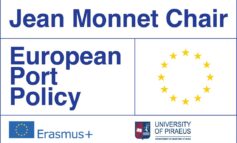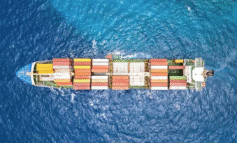In recent years, Piraeus has emerged as one of the most dynamic container ports in Europe and beyond. Following the concession of the major container terminal to COSCO in 2009, and eventually the privatization of the entity managing the entire port in 2016, Piraeus experienced an unprecedented growth of container traffic throughput. Today it stands among the top ten European container ports.
How has this been achieved? The latest port study of PortEconomics members George Vaggelas and Thanos Pallis studies this growth in the light of global alliances strategies, aiming to realise the structures of the growth (i.e. whether is the result of the calls by some liners or more, the type of vessels calling, etc.) and then to assess the impact of these strategies, along with emerging connectivity partners, on the rise of the port of Piraeus to a major hub. It also explores the reasons that have contributed to the increased presence of these liners to the port.
The first part analyses traffic data, aiming at outlining the port’s spatial connectivity, as well as its networking with the major shipping alliances. The second part presents the findings of a field research (survey of container shipping companies using the port of Piraeus) on the critical parameters that have enhanced the growth of the port’s throughput and connectivity.
It also contributes in the discussion regarding the establishment of maritime networks as a core element of the strategies of shipping alliances and the meaning of these networks for ports competitiveness.
The study, presented in the International Association of Maritime Economists 2019 Conference (IAME 2019) held 25-28 June, Athens, Greece and you can find and download the authors’ version of the presentation via PortEconomics.












